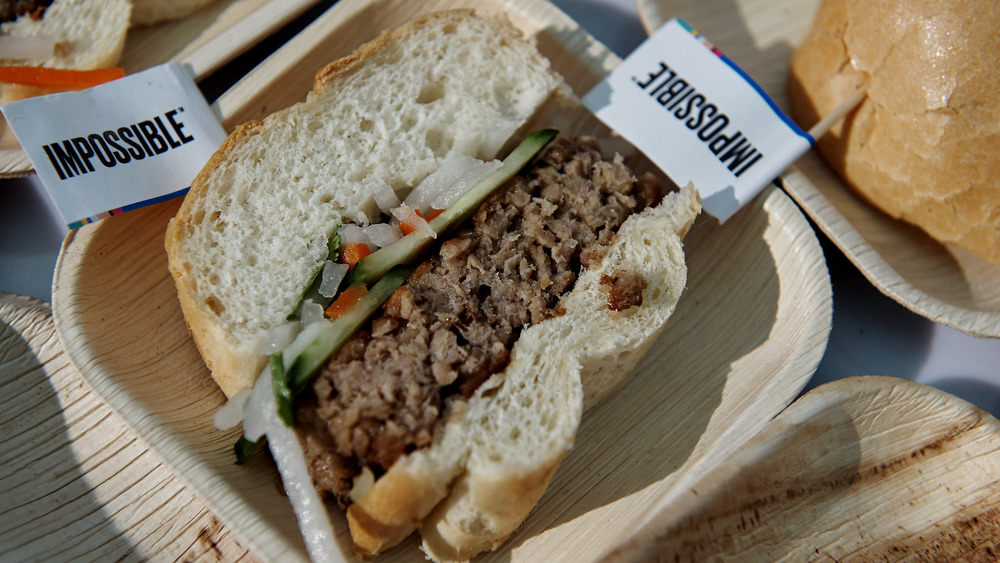Impossible Foods Is About To Get More Affordable
On February 2, Impossible Foods announced that they will reduce the suggested price of their products in grocery stores across the country by 20 percent. As Dennis Woodside, the president of Impossible Foods, explained in a blog post on the company's website, this follows two other price reductions the company enacted in 2020: a 15 percent cut for restaurants and another 15 percent cut for distributors.
Impossible Foods claims that these cuts are possible due to a recent increase in sales of their meatless products. The company says its products are now available in nearly 17,000 grocery stores in the country, which was a surge from just 150 stores in 2019. These booming sales would offset the price cuts: "The more Impossible Burger you buy, the less it costs us to produce per pound, and we choose to pass those savings on to our network of distributors and retailers, with the goal of ultimately lowering prices for consumers."
In the blog post, Impossible Foods says that when they reduced their prices for restaurant buyers, those same restaurants dropped the price charged for meals made from Impossible products. It's a hopeful sign that by similarly charging supermarkets less for their Impossible Burgers, shoppers will see more affordable Impossible products as soon as next month.
Food Dive noted that this follows the long-stated goal of Impossible Foods to undercut the price of meat and incentivize consumers to develop more environmentally sustainable eating habits.
Impossible Foods has yet to reach meat prices
This price cut comes as good news for consumers, as Impossible Foods' price point could have driven many meatless shoppers away. Vox reported that the price cut means a two patty package would drop from $6.99 to $5.49. A 12-ounce package of Impossible ground beef would see a drop from $8.99 to $6.99.
This is still higher than the price of ground beef, which goes for $2.96 for 12 ounces (via Food Business News). Part of the price difference, as Dennis Woodside explained to Vox, is that the meat industry has had a century to optimize its strategy. Lewis Bollard, of the Open Philanthropy Project, told Vox: "The chicken industry has managed to cut all their corners, they don't pay their environmental bills, they don't pay for a lot of the public health hazards they cause. They have managed to produce a product that is just artificially cheap and hard to compete with." Vox also reported that a lack of enforcing workers' rights in these plants and avoiding environmental concerns also cuts the costs. If it were otherwise, meat would be prohibitively expensive, they claim.
Still, Impossible Foods entertains the hope that their continued price cuts will entice more and more consumers away from meat.

